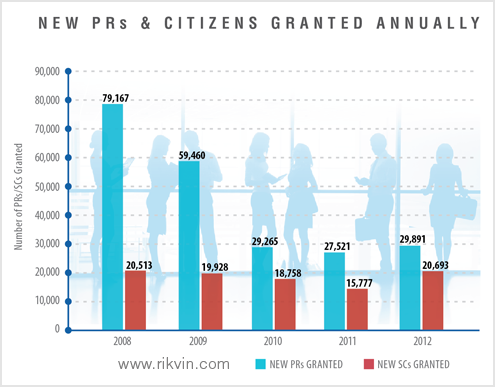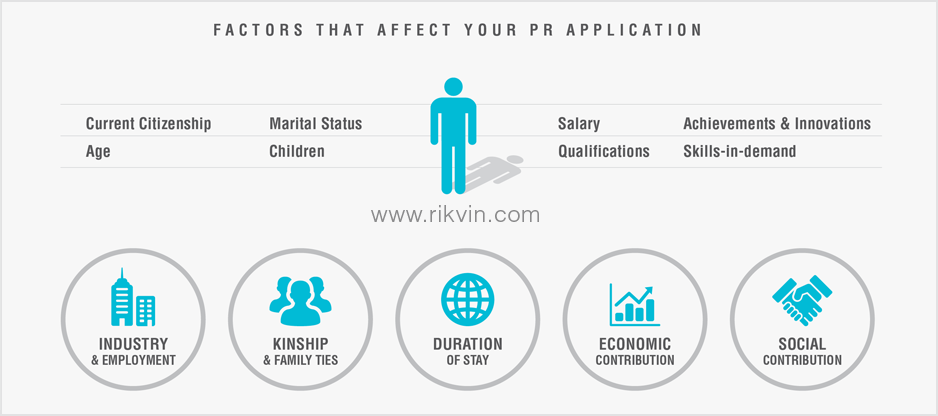Singapore Permanent Residence Scheme
Permanent Residence Schemes in Singapore

A Singapore PR enjoys various benefits, including access to public housing, quality education, and healthcare services at subsidised rates.
Permanent residents also benefit from CPF savings as well as a range of personal tax reliefs and rebates. In addition, permanent residency is an intermediary step towards citizenship.
From the standpoint of the government, permanent residency and naturalisation remain relevant to diversify and grow human capital as well as the population in Singapore.
This is due to Singapore’s low birth rate and ageing population. As stated in the NPTD’s Population White Paper – A Sustainable Population for a Dynamic Singapore, the city-state will grant PR status to 30,000 eligible candidates annually.
Choose Your Approach to PR Status
For Working Professionals
Professional, Technical Personnel and Skilled Workers Scheme (PTS Scheme)
The most popular scheme for permanent residence in Singapore is the Professional, Technical Personnel, and Skilled Workers Scheme (PTS Scheme). It enables professionals working in Singapore under an Employment Pass (EP) or S Pass EntrePass to apply for permanent residence.

View the Rikvin report on Singapore Permanent Residence and Citizenship Trends
For Capital Investors
Global Investor Program Scheme (GIP Scheme)
The Global Investor Program (GIP) is an initiative launched by the Singapore Economic Development Board (EDB) and the Ministry of Manpower (MOM).
It is a program for top-tier business owners who are keen to invest in or initiate new business activities in Singapore, and in the process, obtain Singapore permanent residence. Spouses and children of investors are also eligible for Singapore permanent residence.
Around 200 people have been granted PR status via this programme from 2020 to 2022.
The GIP gives eligible foreigners PR status when they fulfil the requirements under the 3 investment pathways:
- Investment in a new or existing business
- GIP fund investing in Singapore-based companies
- Investment in a new or existing single-family office
As of 15 March, 2023, changes have been made to the GIP.
For Foreign Artistic Talent (ForArts Scheme)
The Foreign Artistic Talent Scheme (ForArts) is a joint programme by the National Arts Council and the Immigration and Checkpoints Authority (ICA) of Singapore.
It aims to attract artists with outstanding track records in dance, music, theatre, literary arts, and visual arts to relocate to Singapore.
This scheme is exclusively for artists in the field of Performing Arts, Visual Arts, Literary Arts, Design and/or Media.
Candidates should have these qualities:
- Formal training and education related to the field of work
- Possess relevant work experience and achievements
- Made significant contributions to Singapore’s arts scene
- Have solid plans to advance the country’s arts scene
The application will be processed by NAC and applicants will be notified of the outcome within 3 months of NAC’s receipt of all supporting documents.
National Service Liability
Applicants who are granted Permanent Residency status under the PTS Scheme or the Investor Scheme are exempted from NS. Male children who are granted PR status under their parents’ sponsorship are liable for NS under the Enlistment Act.
NS-liable PRs are expected to serve NS. Renouncing or losing one’s PR status without serving or completing full-time NS would have an adverse impact on any immediate or future applications to work or study in Singapore, or for Singapore citizenship or PR status.
Males who are granted Singapore PR, and who were previously Singapore Citizens or Singapore Permanent Residents, are liable to be called up for NS regardless of the type of PR status they have been granted.
Check our Singapore PR Application Services »
We make moving to Singapore simple
Enjoy peace of mind with Rikvin's fast relocation and immigration services for both individuals and corporate entities.

